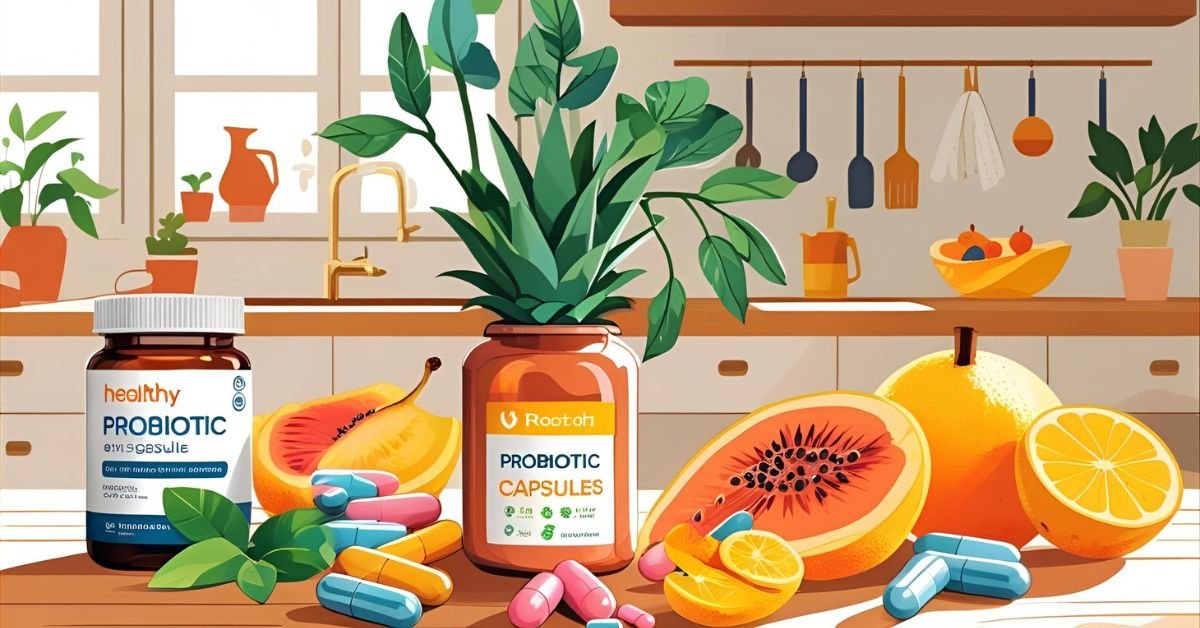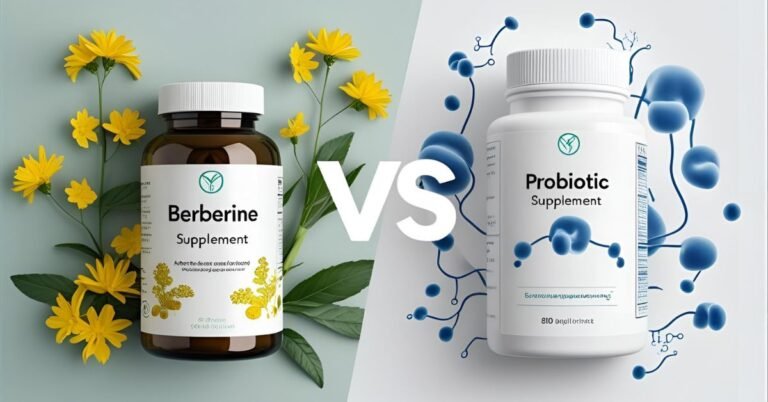Can Probiotics Help with Constipation? 🌿💩 The Ultimate Guide to Relief & Gut Health in 2025
Constipation is a common digestive complaint that affects people of all ages worldwide. It is often characterized by infrequent or difficult bowel movements, bloating, and discomfort. If you are wondering can probiotics help with constipation, the answer is promising: probiotics can improve gut health and promote regularity for many people. In this guide, we will explore how can probiotics help with constipation, share the best probiotic supplements available on iHerb in 2025, and offer practical advice for lasting digestive wellness. 🍎🌟
If you want to understand the medical causes and management of constipation, the Mayo Clinic provides a comprehensive overview here.
Table of Contents
What Is Constipation? Causes and Symptoms Explained 🤔🚽
Constipation occurs due to several factors, including a diet low in fiber, dehydration, a sedentary lifestyle, medication side effects, or an underlying health condition. Gut microbiome imbalance — when harmful bacteria outnumber beneficial ones — can also slow digestion and cause constipation. Symptoms typically include fewer than three bowel movements per week, straining, hard stools, and a feeling of incomplete evacuation.
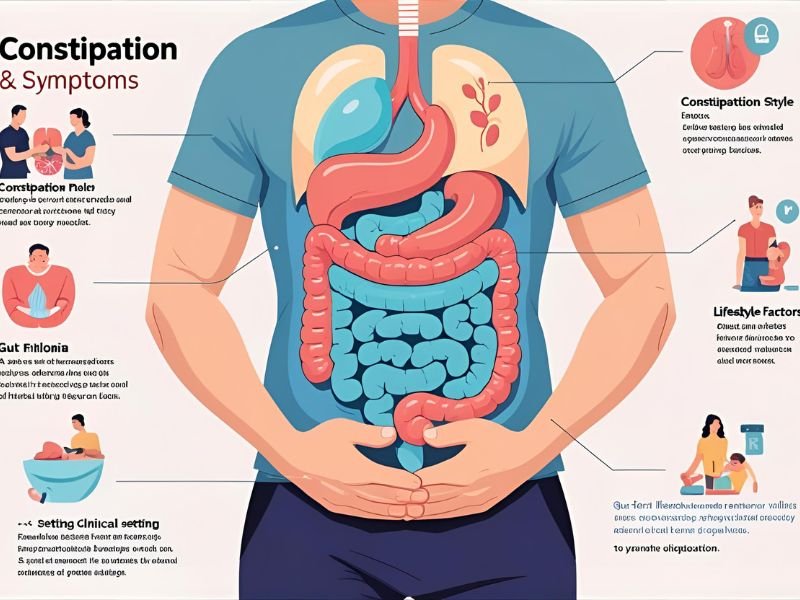
Probiotics, which are live beneficial bacteria, can help restore this balance by improving gut flora diversity and overall function. For more on gut microbiome health, see this detailed resource from the National Institutes of Health (NIH): NIH Microbiome Information.
Learn how to boost gut health naturally through diet and lifestyle in our detailed Gut Health Guide.
How Do Probiotics Help with Constipation? Scientific Insights 🔬💪
Probiotics help with constipation primarily by:
- Increasing beneficial bacteria that enhance intestinal motility.
- Producing short-chain fatty acids that nourish gut cells.
- Reducing gut inflammation can slow bowel movements.
- Balancing pH levels in the colon discourages harmful bacteria.
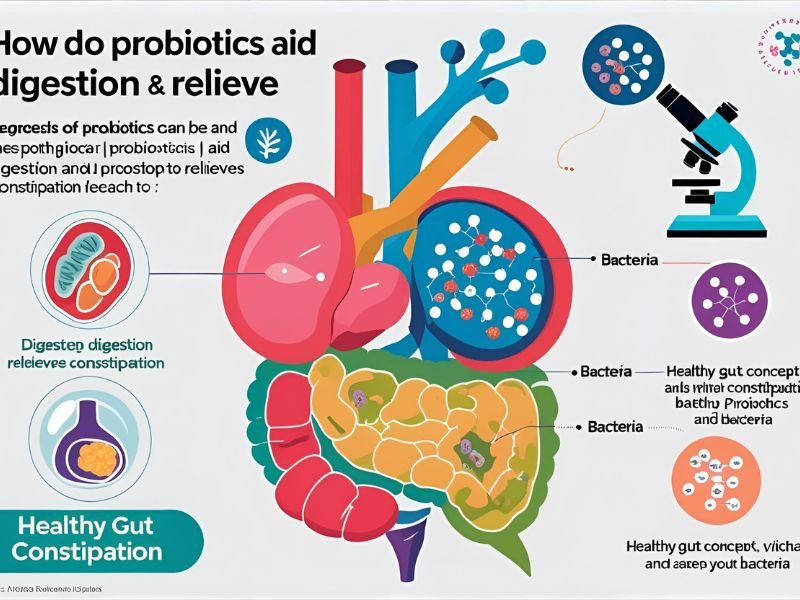
Particularly effective strains for constipation relief include Bifidobacterium lactis, Lactobacillus acidophilus, and Lactobacillus plantarum. Regular intake of these strains can soften stools, improve transit time, and reduce bloating, answering the common question: can probiotics help with constipation? 🌿✨
Scientific research on probiotics and constipation is growing; you can find clinical studies on PubMed here: PubMed Probiotics Constipation Studies.
Best Probiotic Supplements on iHerb for Constipation Relief (2025) 🛒📊
Many top-rated probiotics on iHerb contain the strains and CFU (colony-forming units) necessary to combat constipation. Here are some best sellers with proven benefits:
| Brand & Product | CFU Count | Key Strains | Price (USD) |
|---|---|---|---|
| California Gold Nutrition LactoBif® 30 Probiotics | 30 Billion CFU | Bifidobacterium lactis + 7 others | $20.11 |
| NOW Foods Probiotic-10 | 25 Billion CFU | 10 diverse strains | $15.73 – $30.61 |
| Garden of Life Dr. Formulated Once Daily Women’s | 50 Billion CFU | 14 strains + prebiotics | $32.19 |
Find these top probiotics and read user reviews on iHerb’s official probiotics section here.
Explore our in-depth Best Probiotic iHerb Reviews 2025 for product comparisons and expert insights.
How to Use Probiotics Effectively for Constipation 🕒💧
To maximize the benefits of probiotics for constipation:
- Take a product with at least 10 billion CFU per serving.
- Use consistently for 4 to 8 weeks to allow the microbiome to adjust.
- Combine with a high-fiber diet rich in fruits, vegetables, and whole grains.
- Stay well hydrated and maintain regular physical activity.
- Avoid unnecessary antibiotics that disturb gut flora balance.
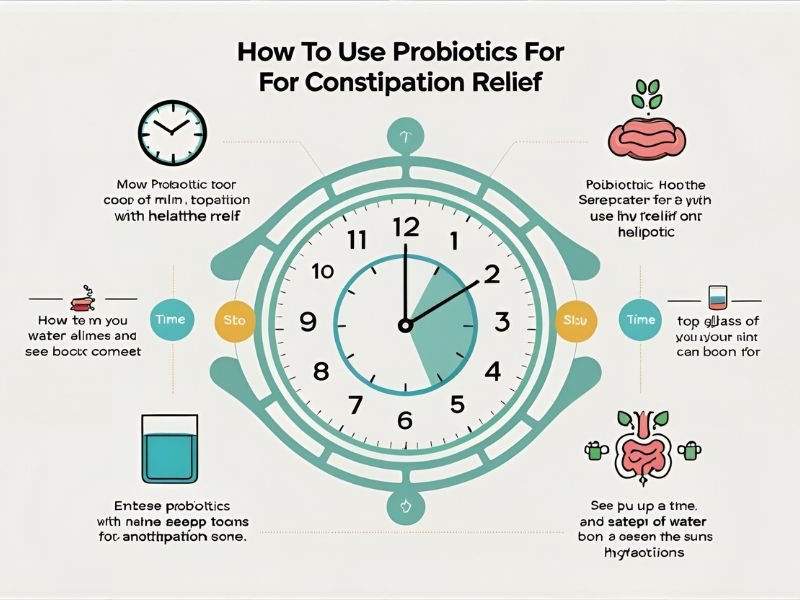
Learn about lifestyle factors that boost probiotic effectiveness in the comprehensive guide from the Cleveland Clinic.
Frequently Asked Questions (FAQs) ❓💬
Q: Can probiotics cause any side effects?
A: Some users may experience mild bloating or gas initially. These usually subside as your body adjusts.
Q: Are all probiotics the same for constipation?
A: No. Strains like Bifidobacterium lactis are more effective for constipation relief than general probiotics.
Q: Can children take probiotics for constipation?
A: Yes, but choose age-appropriate formulas and consult a pediatrician.
For more FAQ and detailed advice, visit the Mayo Clinic probiotics guide
Final Thoughts 💡✅
So, can probiotics help with constipation? Yes, they can be a natural, effective way to restore gut balance, improve stool consistency, and promote digestive comfort. Pair your probiotic supplementation with a healthy lifestyle for the best results.
(As an affiliate, we may earn a commission from qualifying purchases at no extra cost to you. We only recommend products we trust.)
About the Author
This article was written and medically reviewed by the BellyBrainBed Editorial Team. Our team is composed of certified health coaches, nutritionists, and sleep science enthusiasts dedicated to providing accurate, evidence-based information to help you achieve optimal wellness. We believe in transparency and trust, and every piece of content is rigorously checked to meet our high E-E-A-T standards. [Learn more about our editorial process]
